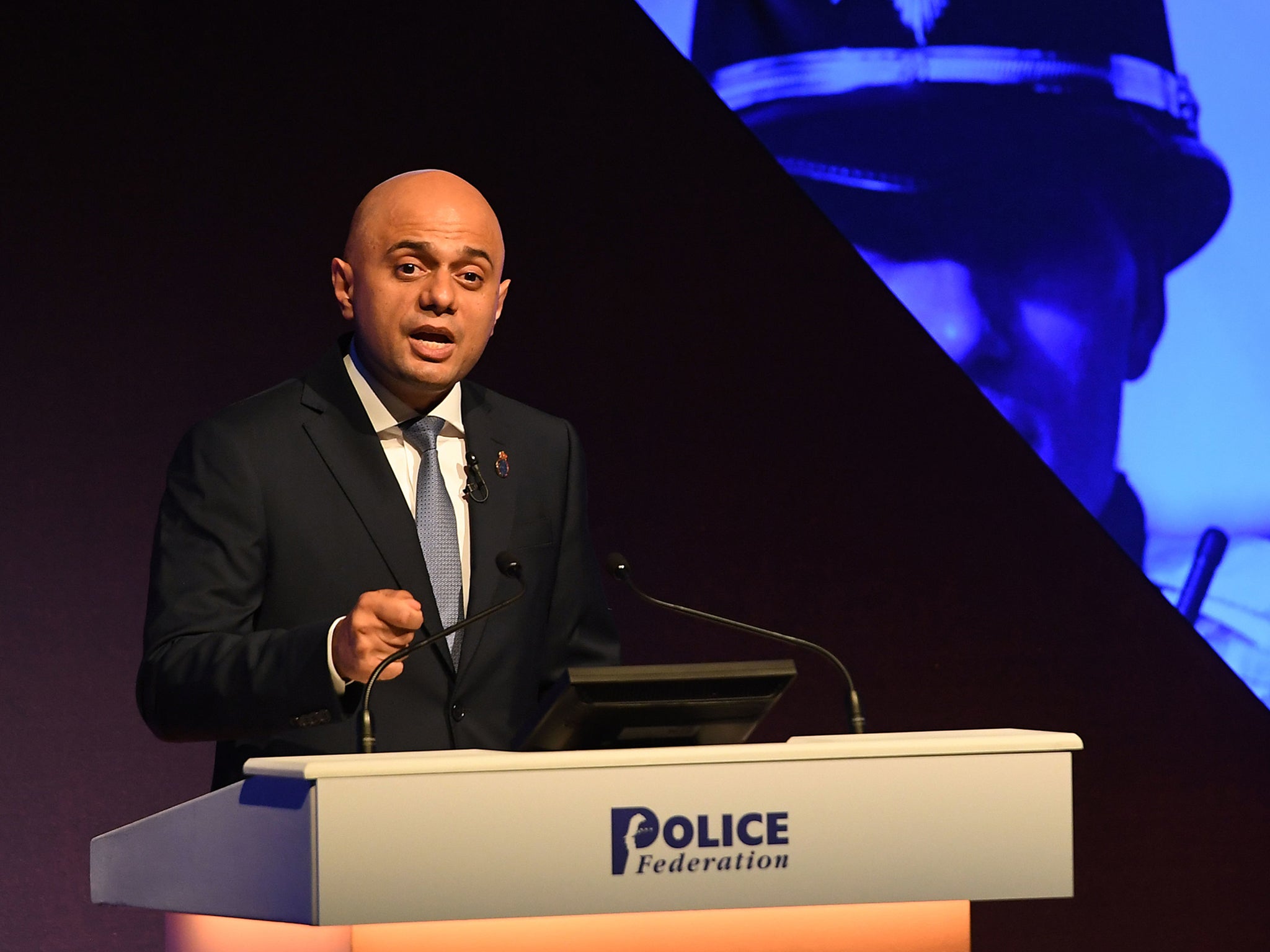Police forces are ‘failing the public’ due to cuts, Police Federation chief warns
‘We are moving into an area where some crimes will not be investigated ... we can’t do everything’

The British public are being “failed” because huge demand and stretched resources mean police are not responding to crimes they would have dealt with in the past, the new head of the Police Federation has warned.
John Apter, who has been a police officer for 26 years, told The Independent that policing in some areas was “broken” and said that government cuts had created a “crisis”.
“We are moving into an area where some crimes will not be investigated, whereas two to five years ago they were,” he said.
“We can’t do everything – there are going to be situations where we simply can’t deliver the policing we want to deliver.
“In those cases we are failing the public but that’s not the fault of police officers on the ground, and in some cases it’s not the chief constable’s fault. You can only slice the financial cake so many ways and you have to prioritise ... the public are already suffering and they are going to suffer more and more.”
Last year the Metropolitan Police announced the creation of a new “crime assessment policy”, which gave officers new guidelines on when to stop investigations.
Details suggested that incidents involving a loss of under £50 would not be investigated, as well as offences where there is not a “realistic chance officers will be able to solve it”.
Shoplifting, car crime and criminal damage were among the “lower level” offences being downgraded amid a rise in violent crime, sex offences and 999 calls.
Scotland Yard said the measures were needed to “balance the books” as the force works to make £325m savings by 2022.
In response to questions by The Independent, several other forces said they had implemented measures aiming to make better use of their “finite resources”.
Thames Valley Police has changed its policies on dealing with shoplifting and drivers who flee petrol stations without paying for fuel “to reduce demand on the frontline”.
The force is giving business owners packs allowing them to collect their own evidence and CCTV footage for police, so officers can investigate without travelling to the scene.
“New structures have been designed to provide more flexibility to ensure Thames Valley Police better prioritises, and effectively and efficiently targets resources to the areas of greatest need,” a spokesperson said.
West Yorkshire Police chief constable Dee Collins said her force had to “completely change the way we work”.
“We have to make incredibly difficult decisions, as we seek to balance significantly reduced resources against very high levels of demand” that is often not crime-related, she added.
“I would really like to dispatch more officers to more victims on more occasions than we do but given the current situation and demands for our services, sadly we have to be realistic and pragmatic.”
Bedfordshire Police said the increase in “hidden crimes” like cyber offences, modern slavery and sexual exploitation had changed policing dramatically in recent years.
Deputy chief constable Garry Forsyth said the force had started giving appointments to victims of crimes where there is no threat to the wider public.
“We have to make difficult decisions every day about the crimes we can respond to and whether there is sufficient evidence to warrant a full investigation,” he added.
“Obviously we will always prioritise those high-harm crimes which change people’s lives, where there is a threat to the public’s safety, but we are exploring a range of options where there might be alternative resolutions to dealing with incidents to help maximise our officers’ time.”
A Leicestershire Police spokesperson said it was using “limited resources most effectively to deliver public value for money”, adding: “We have to prioritise investigations that cause the highest harm.”
The National Police Chiefs’ Council (NPCC) has been urging police forces to use the “Thrive” model which prioritieses emergency calls according to “threat, harm, risk, investigation possibilities, vulnerability and engagement”.
“Every police service is facing continuous challenges re financial constraints and service delivery, demand and resourcing to public expectations and needs,” said a document published last April. “Each service has adopted its own approach, project and programme thinking regarding future policing delivery.”
North Yorkshire Police said the system is not a “one-size-fits-all-policy” on different crime types and still allows a bespoke response for each incident.
“There is no doubt that we have to manage our resources carefully and cannot attend every incident that’s reported to us,” a spokesperson added.
“Over the past year Thrive has helped us to reallocate around 2,000 hours of police-officer time from incidents that didn’t really need police attendance to incidents where they can make a real difference.”
HM Inspectorate of Constabulary’s annual report found that forces are failing to respond to low-priority crimes because of “significant stress” caused by budget cuts and rising demand, saying that prioritisation assessments can sometimes “be misapplied or poorly managed” and put people at risk.
Inspectors also warned that if a victim’s first experience with police is not positive, they may not report crimes in the future.
Research published exclusively by The Independent earlier this month showed that confidence in the criminal justice system is declining among victims, with one woman saying her experience left her wondering “what is the point in ringing” the police.
Police forces have been working to improve their technology and procedures, but many cite the impact of “unprecedented” demand driven by factors including increasing 999 calls, rising violent crime and complex sexual offence cases and fraud.

The number of police officers in England and Wales has fallen to a record low after plummeting by around 22,000 since 2010, while the past year has seen homicides rise by 12 per cent, knife crime by 16 per cent and robbery by 30 per cent.
The government says there is no conclusive evidence of a link between rising crime and falling police officer numbers, but Mr Apter insisted there was “absolutely” a relationship, adding: “The demand has massively increased while officer numbers have considerably been cut.
“The maths just does not add up and the government are purely responsible.”
Almost half of all criminal investigations are being closed with no suspect identified, and the proportion ending with someone being charged or summonsed to court fell to just 9 per cent in the year to March.
Mr Apter said funding cuts were also increasing the strain on police officers themselves, amid a rise in long-term sickness and a record number taking second jobs to supplement their incomes.
“The reality is that policing in some places is broken, we are most certainly in crisis and that is a direct result of the pressure the government has put on by a reduction in funding,” he added.
“I’m not saying that in the early days of austerity there were not efficiencies to be made, but what we are finding now is that we’ve been cut so much we start to become inefficient.
“We’re not giving the service we want to the public and we’re certainly not looking after our officers as much as we should be.”
Sajid Javid has promised to fight for more resources for policing in a government-wide spending review but admitted he has “no magic wand” to increase funding.
A Home Office spokesperson said: “Police have the resources they need to carry out their vital work and we have provided a strong and comprehensive settlement that is increasing total investment in the police system by over £460m in 2018/19, including funding for local policing through council tax precept.
“However, we know the nature of crime is changing. That is why the policing minister spoke to every police force in the country to understand the demands they are facing and why the home secretary, in May, committed to prioritising police funding in next year’s spending review.”
